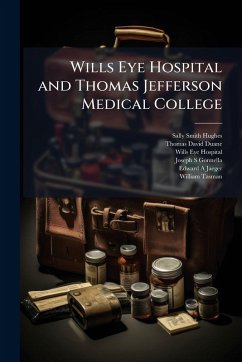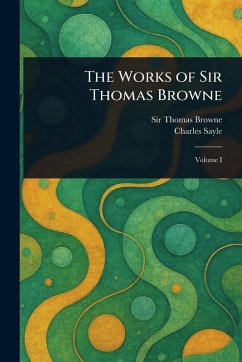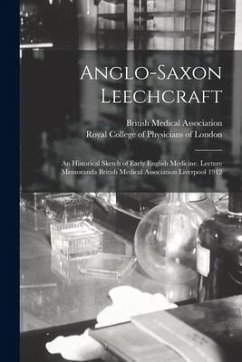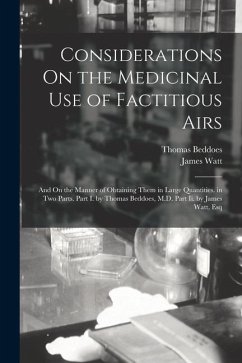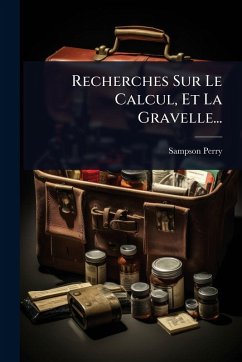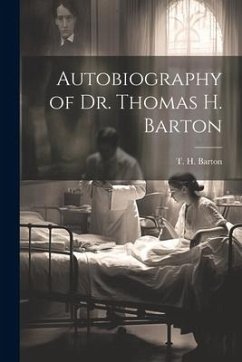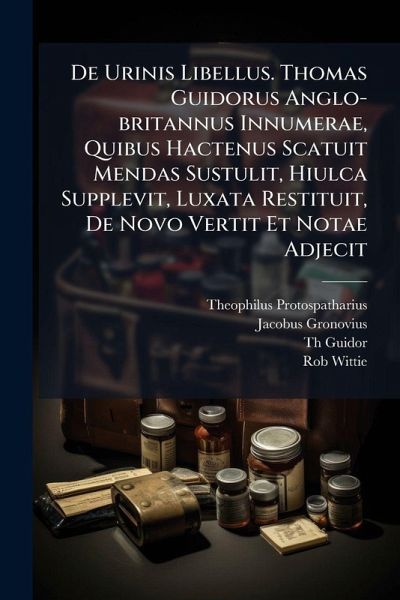
De Urinis Libellus. Thomas Guidorus Anglo-britannus Innumerae, Quibus Hactenus Scatuit Mendas Sustulit, Hiulca Supplevit, Luxata Restituit, De Novo Vertit Et Notae Adjecit

PAYBACK Punkte
12 °P sammeln!
De Urinis Libellus is a historical work on urology and urine analysis, presented in Latin. This edition, carefully revised and annotated by Thomas Guidorus, addresses the numerous errors and deficiencies found in previous versions. Guidorus, an Anglo-British scholar, has corrected mistakes, filled gaps, restored dislocated passages, and provided a new translation, enhancing the text's clarity and accuracy. The work of Theophilus Protospatharius is further illuminated by the editorial contributions of Jacobus Gronovius and Rob Wittie. This edition offers valuable insights into the history of me...
De Urinis Libellus is a historical work on urology and urine analysis, presented in Latin. This edition, carefully revised and annotated by Thomas Guidorus, addresses the numerous errors and deficiencies found in previous versions. Guidorus, an Anglo-British scholar, has corrected mistakes, filled gaps, restored dislocated passages, and provided a new translation, enhancing the text's clarity and accuracy. The work of Theophilus Protospatharius is further illuminated by the editorial contributions of Jacobus Gronovius and Rob Wittie. This edition offers valuable insights into the history of medicine and the development of diagnostic techniques related to urology. It will be of interest to scholars of medical history, classical texts, and the Latin language. This work has been selected by scholars as being culturally important, and is part of the knowledge base of civilization as we know it. This work was reproduced from the original artifact, and remains as true to the original work as possible. Therefore, you will see the original copyright references, library stamps (as most of these works have been housed in our most important libraries around the world), and other notations in the work. This work is in the public domain in the United States of America, and possibly other nations. Within the United States, you may freely copy and distribute this work, as no entity (individual or corporate) has a copyright on the body of the work. As a reproduction of a historical artifact, this work may contain missing or blurred pages, poor pictures, errant marks, etc. Scholars believe, and we concur, that this work is important enough to be preserved, reproduced, and made generally available to the public. We appreciate your support of the preservation process, and thank you for being an important part of keeping this knowledge alive and relevant.




